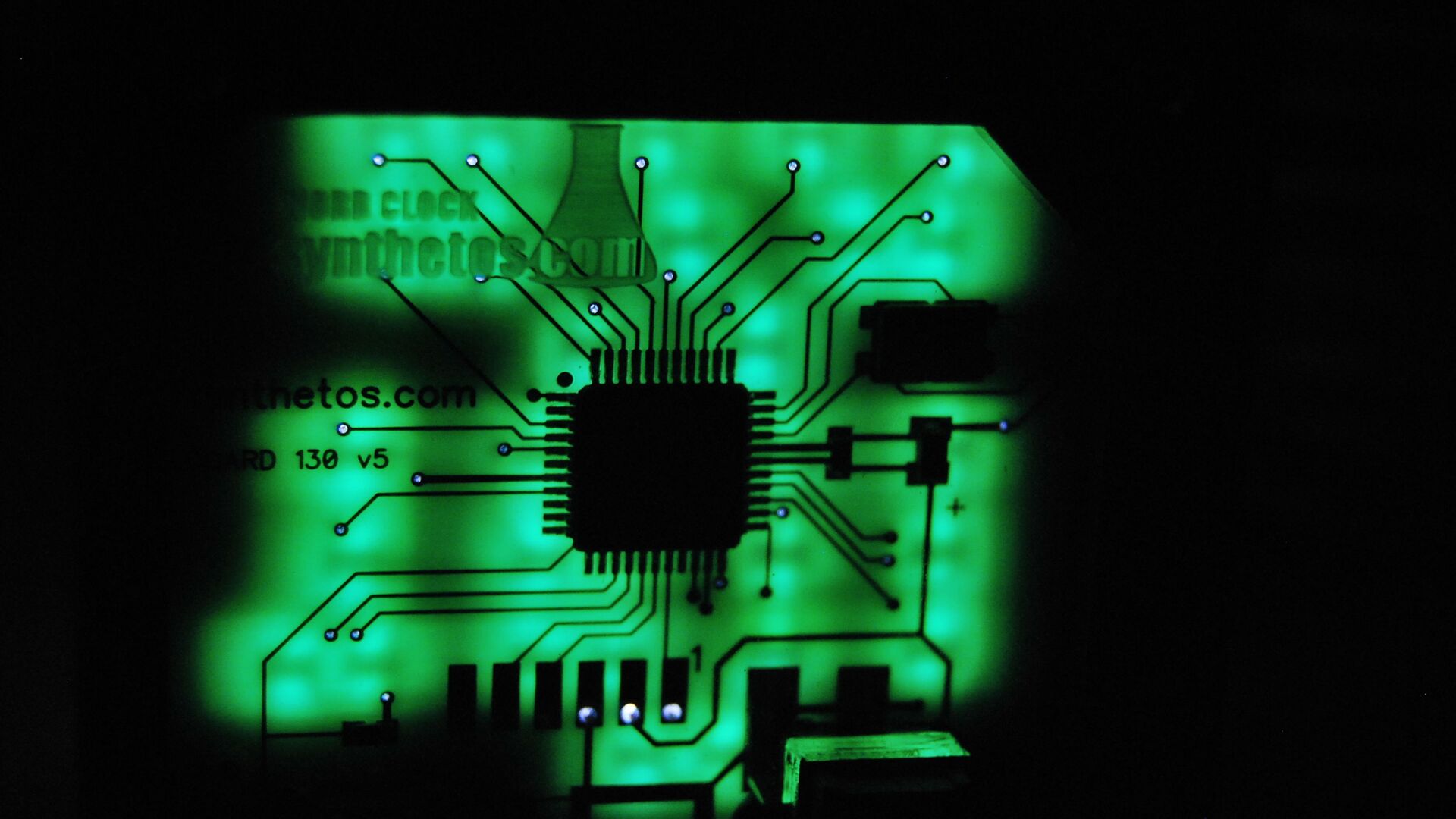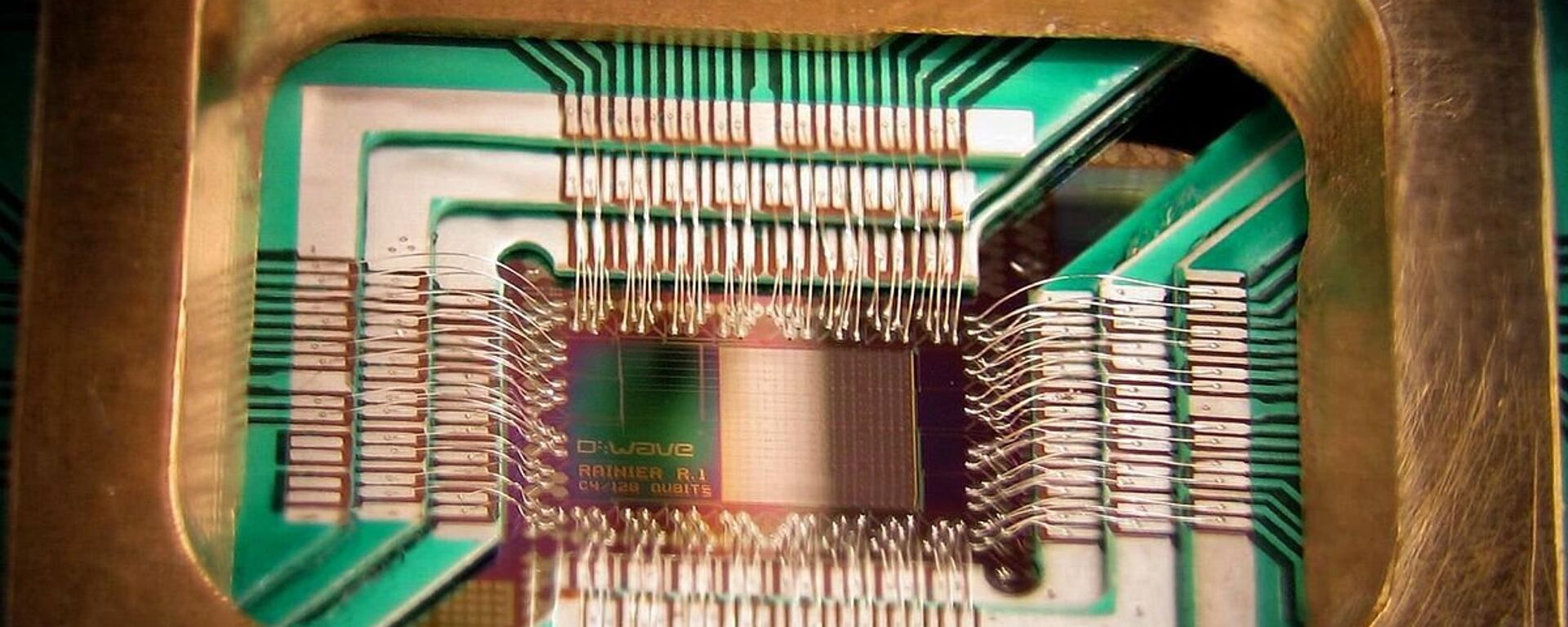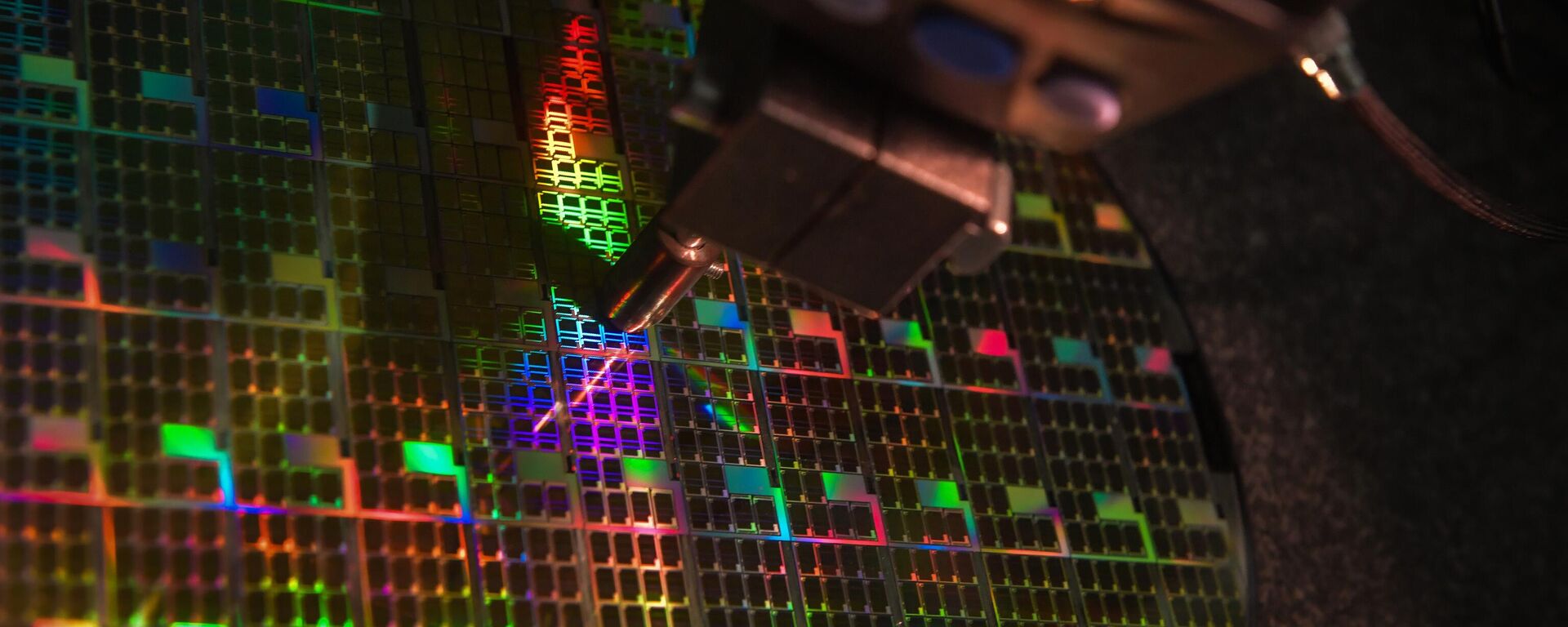https://sputnikglobe.com/20230803/advanced-microchips-should-be-shared-endeavor-to-fight-global-warming-not-target-of-us-china-feud-1112376744.html
Advanced Microchips Should Be ‘Shared Endeavor’ to Fight Global Warming, Not Target of US-China Feud
Advanced Microchips Should Be ‘Shared Endeavor’ to Fight Global Warming, Not Target of US-China Feud
Sputnik International
An expert told Sputnik that the tit-for-tat between Washington and Beijing over microchip manufacturing techniques is taking place amid a far greater threat to... 03.08.2023, Sputnik International
2023-08-03T21:24+0000
2023-08-03T21:24+0000
2023-08-03T21:24+0000
analysis
china
semiconductors
trade war
climate change
export
https://cdn1.img.sputnikglobe.com/img/107918/74/1079187450_0:105:3059:1826_1920x0_80_0_0_4f5c8bb3cbc58f5f2a0b4739a510319f.jpg
In reply to a concerted effort to deprive China of access to some of the world’s best microchips, the East Asian country has moved to restrict exports of some of the key minerals used to manufacture those chips.New export controls on gallium and germanium kicked in on August 1, restricting the sale abroad of eight products containing gallium and six containing germanium - two metals used to make semiconductors.The move comes after the United States, Japan, and the Netherlands jointly agreed to restrict the sale of immersion deep ultraviolet (DUV) lithography technology to China, which has not yet mastered the process. Forced to import the technology for its massive tech manufacturing industries, the Chinese government has sponsored a massive effort in recent years to master advanced chipmaking itself. Within the last year, several Chinese firms have unveiled their own DUV and extreme ultraviolet (EUV) lithography machines, although they still lag behind the West’s best techniques.Dr. Ken Hammond, a professor of East Asian and Global History at New Mexico State University and the author of “China’s Revolution and the Quest for a Socialist Future,” told Radio Sputnik’s Political Misfits on Thursday that the world’s two largest economies should be cooperating on efforts to fight global warming by adopting advanced new technologies rather than sparring.“Now, we have China reacting to that with these restrictions. And of course, they’re not total restrictions on the export of these minerals. What they are, are simply regulations that say companies that want to export these minerals need to get a particular export license,” he explained. “So it gives the state the ability to restrict these exports in new ways, but it doesn’t just automatically do that. So we’ll see how this actually plays out as it goes forward.”Hammond noted that references to the chip shortages earlier in the COVID-19 pandemic that delayed the delivery of automobiles, particularly electric vehicles, is “a very real-world kind of impact that this contention may have.”“It’s very troubling because we need to be finding ways to improve cooperation over things like electric vehicles and other ways in which we can address issues like global warming and especially the summers we’re all having, I think we need to start taking this a little bit more seriously,” Hammond said.
https://sputnikglobe.com/20230525/where-does-us-import-semiconductors-from-1110583219.html
https://sputnikglobe.com/20230802/chinese-tech-firms-unveil-new-microchip-production-amid-spat-with-west-1112354567.html
china
Sputnik International
feedback@sputniknews.com
+74956456601
MIA „Rosiya Segodnya“
2023
News
en_EN
Sputnik International
feedback@sputniknews.com
+74956456601
MIA „Rosiya Segodnya“
Sputnik International
feedback@sputniknews.com
+74956456601
MIA „Rosiya Segodnya“
china, semiconductors, trade war, climate change, export
china, semiconductors, trade war, climate change, export
Advanced Microchips Should Be ‘Shared Endeavor’ to Fight Global Warming, Not Target of US-China Feud
An expert told Sputnik that the tit-for-tat between Washington and Beijing over microchip manufacturing techniques is taking place amid a far greater threat to both nations: climate change, which requires the proliferation of such advanced technologies in order to solve.
In reply to a concerted effort to deprive China of access to some of the world’s best microchips, the East Asian country has moved to restrict exports of some of the key minerals used to manufacture those chips.
New export controls on gallium and germanium kicked in on August 1, restricting the sale abroad of eight products containing gallium and six containing germanium - two metals
used to make semiconductors.
The move comes after the United States, Japan, and the Netherlands jointly agreed to
restrict the sale of immersion deep ultraviolet (DUV) lithography technology to China, which has not yet mastered the process.
DUV and related lithography methods are used to forge the world’s smallest and most advanced microchips necessary for high-end tech products, and are only made by a few companies located in the US, the Netherlands, Japan, South Korea, and Taiwan.
Forced to import the technology for its massive tech manufacturing industries, the Chinese government has sponsored a massive effort in recent years to master advanced chipmaking itself. Within the last year, several
Chinese firms have unveiled their own DUV and extreme ultraviolet (EUV) lithography machines, although they still lag behind the West’s best techniques.
Dr. Ken Hammond, a professor of East Asian and Global History at New Mexico State University and the author of “China’s Revolution and the Quest for a Socialist Future,” told Radio Sputnik’s Political Misfits on Thursday that the world’s two largest economies should be cooperating on efforts to fight global warming by adopting advanced new technologies rather than sparring.
“We need to see the situation with chip manufacturing and that whole technology zone as one component of this broad spectrum offensive that the United States has launched to try to slow down China’s development, derail their progress, things like that. The United States has taken a number of steps, a sequential development of this policy of increasing these efforts to thwart especially China’s effort to develop the highest-level technologies in chips,” Hammond said.
“Now, we have China reacting to that with these restrictions. And of course, they’re not total restrictions on the export of these minerals. What they are, are simply regulations that say companies that want to export these minerals need to get a particular export license,” he explained. “So it gives the state the ability to restrict these exports in new ways, but it doesn’t just automatically do that. So we’ll see how this actually plays out as it goes forward.”
Hammond noted that references to the chip shortages earlier in the COVID-19 pandemic that delayed the delivery of automobiles, particularly electric vehicles, is “a very real-world kind of impact that this contention may have.”
“It’s very troubling because we need to be finding ways to improve cooperation over things like electric vehicles and other ways in which we can address issues like global warming and especially the summers we’re all having, I think we need to start taking this a little bit more seriously,” Hammond said.
"And yet, you have these kinds of controversies around chip manufacturing, which should be a shared endeavor and instead is turning into this sad kind of back-and-forth set of policies," he noted. "I find this to be a very troubling kind of scenario.”






